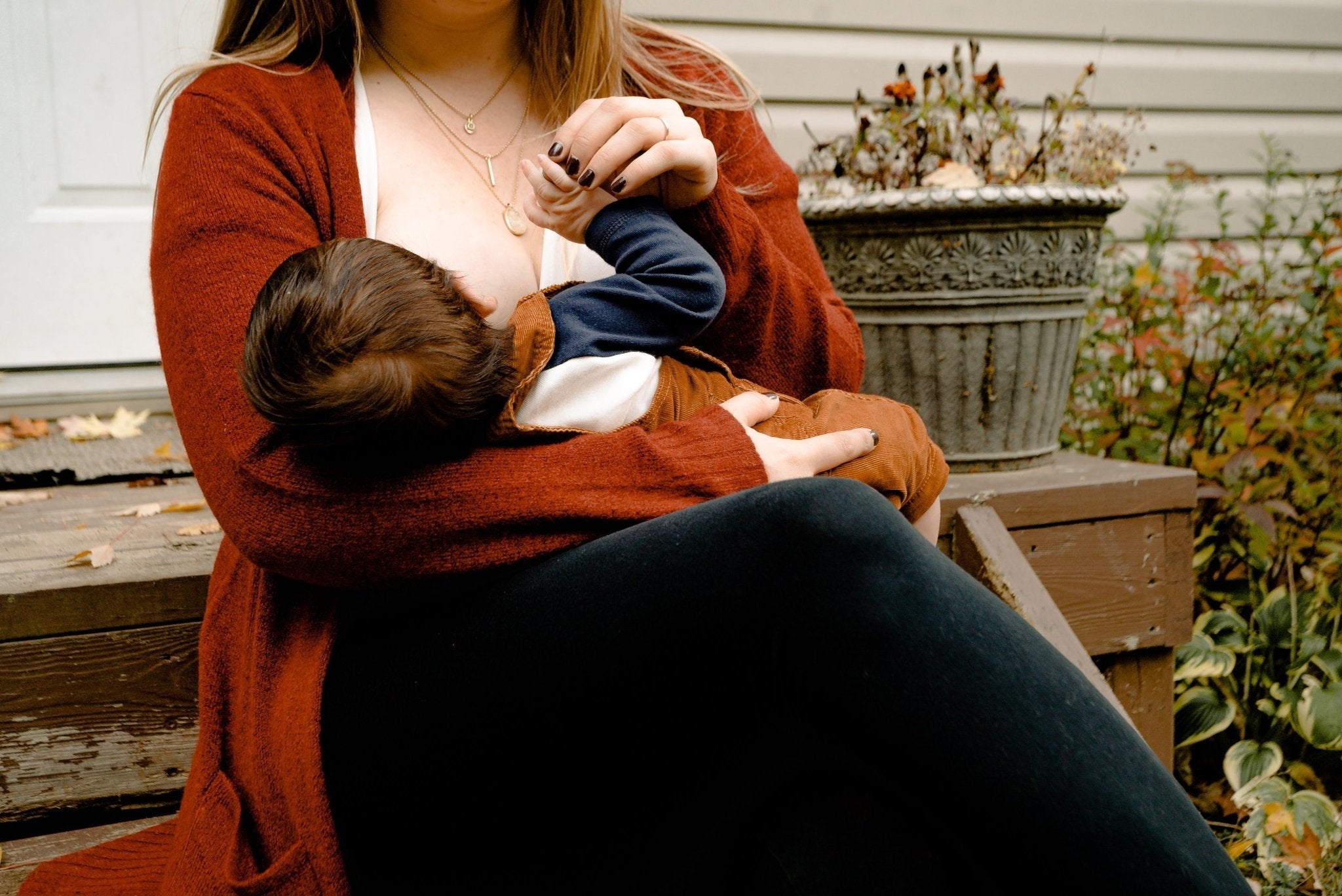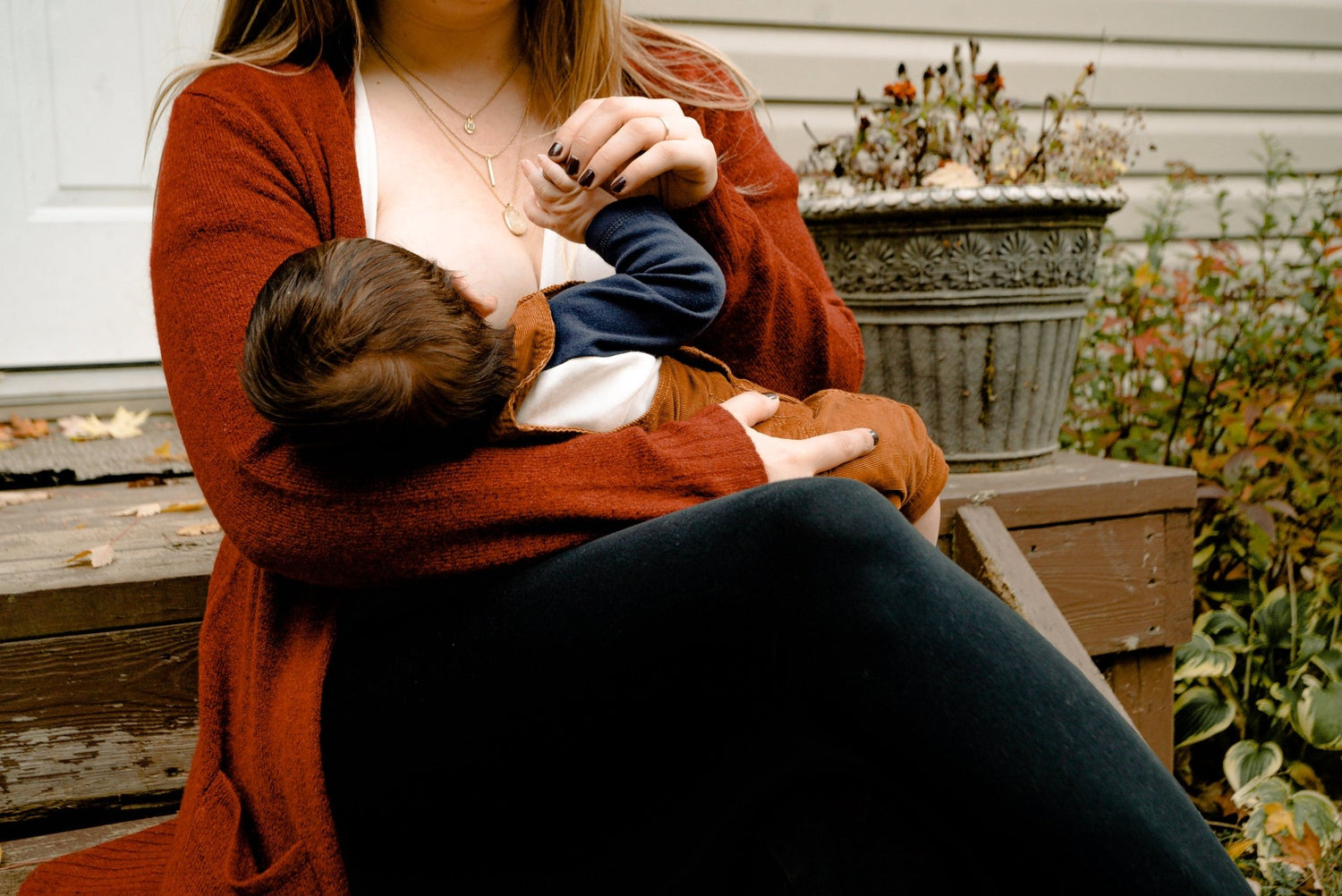Should I wake my baby to breastfeed?
As a rule, every (breastfed) baby wakes up several times a night to feed. But sometimes you are told that you have to actively wake your child or you start to get restless because your baby hasn't fed for so long. Nighttime breastfeeding is generally very important for a newborn, but also for an infant. It maintains milk production, provides your child with all the nutrients it needs and helps mom keep the breast nice and soft.
You can read in this article whether you really have to actively wake your baby up at night and why this is necessary for some babies.
|
Table of contents: |
1. Do I have to wake my baby to breastfeed (at night)?
In general, it is not recommended to wake babies at night to breastfeed, because their little bodies know from birth how to signal when they feel the need to breastfeed. In general, a newborn baby drinks heavily after birth and is then very sleepy for up to 12 hours because it is recovering from the birth. But there are of course cases in which waking up is important.
A distinction must be made here between newborns (up to the 28th day of life) and infants (from the beginning of the 29th day of life to the 12th month of life). A healthy, full-term infant never needs to be woken up to breastfeed. If your baby sleeps for 6 hours at 3 weeks without getting in touch, then enjoy your free time! In most cases, the breastfeeding relationship is already established during infancy and parents can trust that their baby will speak up when it needs closeness or food.
In rare cases, a newborn is not able to do this: a long, strenuous birth may have taken energy; the newborn has lost more than 10-12% of its body weight and is drinking ineffectively or is sick.
After a physiological birth without strong painkillers or epidurals, it is often the case that the newborn and the mother recover from the strain of the birth and catch up on a lot of sleep in the first few days after birth. If this newborn is breastfed without any external teat (pacifier, bottle, etc.) and on demand, it normally does not need to be woken up. From then on, the newborn should expect around 8-12 breastfeeds per day. It's best to start at the first signs of hunger (smacking your lips, moving your head, etc.) and not just when your baby cries. If you feel uncomfortable or experience (severe) pain while breastfeeding, contact the responsible specialist or, ideally, a lactation consultant.
A strong painkiller, a very long labor, an epidural, or a cesarean section can cause the newborn to be a little more groggy. The overall situation should be considered here: If the newborn drinks effectively (visible swallowing, ear/jaw area and temple region moving, etc.), then it can be assumed that he or she is getting enough milk. Waking or feeding is rarely necessary. However, it can definitely make sense to wake the newborn (e.g. every two to four hours) so that the breast produces enough milk. Milk production always depends on demand: the more the breast is sucked/sucked, the more milk is produced. However, it is usually enough to invest early enough.
Babies born prematurely often have special needs and a different starting situation. Close cooperation with the medical staff of the children's clinic (and a certified lactation consultant) is required. Lots of skin-to-skin contact and laying on will help your child adapt to the new environment. It is best to clarify with the responsible nursing staff whether a nighttime wake-up call is necessary.
Be careful when using pacifiers (see also section 3): a pacifier (including a pacifier) can tire a newborn and thereby minimize the natural need to suck on the breast. After the birth, make sure there is a lot of naked skin-to-skin contact and offer your baby the breast if there are slight signs of hunger.
2. What is the best way to wake up my baby?
Whether you want to wake your baby to feed at night or during the day, start gently. Don't just pick it up, speak to it in a voice that slowly gets louder. You can explain to him what you are doing and pet him lovingly. Sometimes it can be stimulating if you take off your socks and massage your little feet. Your newborn may already be stretching around. You can take it to yourself (or maybe it's already next to you?) and offer your breast. Sometimes it can help to stroke the mouth area with the nipple and touch the lips. This triggers the search reflex. If the mouth is now open wide enough, you can latch on your baby.
If your baby still hasn't woken up, you can carefully pick him up and continue talking to him or singing to him. Changing diapers can also lead to the desired wake-up.
If he keeps falling asleep while nursing, you can try giving him another foot massage, gently massaging his jaw and ears, or accepting that he needs more sleep before he wants to nurse again.
3. How do I recognize a sleepy baby and what can it indicate?
Do you feel like your baby is sleepy too often and you wake him up regularly? Maybe your child is no longer a newborn but an infant and still falls asleep while breastfeeding? Does your child show other symptoms such as fatigue or poor weight gain?
A sleepy baby can be the first warning sign of a condition such as neonatal jaundice or sucking disorder. Please discuss your concerns with medical staff.
Jaundice is often noticed in the hospital or by your follow-up midwife, but parents also quickly notice when something is wrong: sleepy and weak baby, few excretions, yellowing of the skin and the whites of the child's eyes also turn (strongly) yellowish ? This is a case for the midwife and/or the pediatrician.
Suction confusion is often less noticeable and occurs through the use of artificial teats such as pacifiers and bottles. One consequence of this can be weight loss, because the child becomes tired of sucking on the pacifier and thus stimulates milk production less, so he has to be woken up more often. Here you can contact a lactation consultant or nursing staff/midwife with additional training or, as a preventative measure, avoid using pacifiers and, if necessary, supplement with breastfeeding-friendly feeding (pipette, open cup - depending on the age of the baby).
4. When do I no longer have to wake my baby at night?
Sometimes it happens that as a parent you miss the moment when your child can actually do something on their own. When waking up at night, I recommend looking at the child's general condition in combination with the reason why the child was woken up in the first place.
For example, did you wake up your child the first few nights to breastfeed because you had a birth with an epidural and you felt more comfortable that way? Then look at your child’s weight development! Is he gaining weight well, drinking more and more actively and your breasts have already filled with milk? Then now might be a good time to try out whether you can slow down the (nighttime) waking.
Did your child have neonatal jaundice and you woke him up at night so that he could gain enough weight and eliminate the bilirubin? Then it's best to decide together with the medical staff whether you can stop waking your child to breastfeed.
In general, every case is a little different and cannot be assessed across the board. It's best to listen to your gut feeling and look at your child as a whole: Is he or she active? Is it increasing? Is your breastfeeding relationship getting better?
5. Conclusion
After birth, the baby is just as exhausted as the mother. A birth is work for both of them, because the newborn has to process all the new impressions first.
A mother can best help her child here by making a lot of naked physical contact and putting on a lot of clothing. This stimulates enough milk and the baby can arrive in security.
Through the crying of the newborn and the rapid soothing at the breast, nature regulates the child's nutrition, arrival in this world and sufficient weight gain. By listening to your child and trusting nature, it will only be necessary to wake your child in very rare cases.
Guest post by Sabrina from In Liebe Stillen:
Instagram: sabrina.grabow
Website: www.inliebestillen.de




